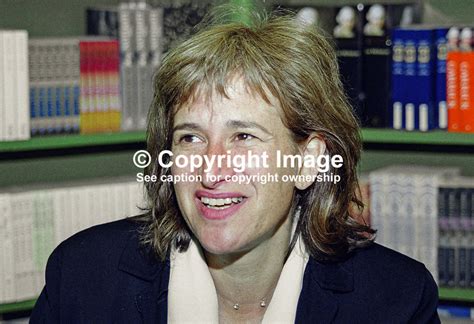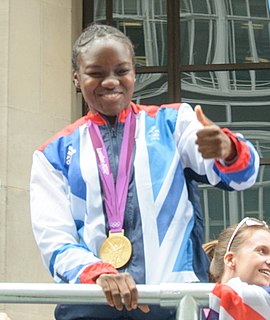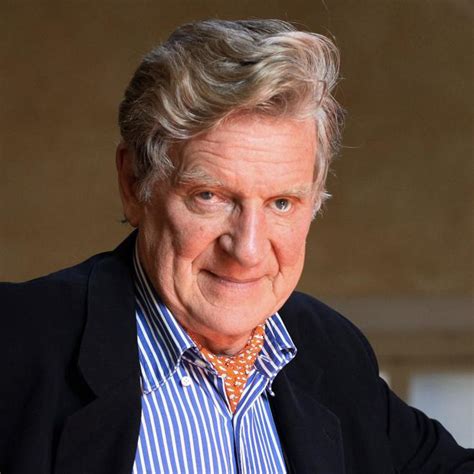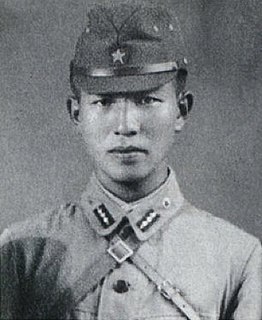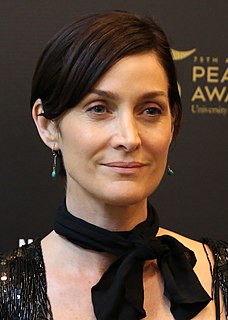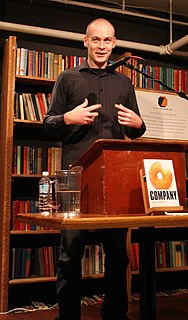A Quote by Melissa Bank
You did the best you could," and she seemed to believe I had. I said, "I've just been going through the motions," using the expression my father had after he'd watched my first tennis lesson. "Sweetie," she said, "that's what a lot of life is.
Related Quotes
"She (Minnie Ruth Solomon) was unusual because even though I knew her family was as poor as ours, nothing she said or did seemed touched by that. Or by prejudice. Or by anything the world said or did. It was as if she had something inside her that somehow made all that not count. I fell in love with her some the first time we ever talked, and a little bit more every time after that until I thought I couldn't love her more than I did. And when I felt that way, I asked her to marry me . . . and she said she would."
Hello, Harry!” she said. “Er — my name’s Barny,” said Harry, flummoxed. “Oh, have you changed that too?” she asked brightly. “How did you know — ?” “Oh, just your expression,” she said. Like her father, Luna was wearing bright yellow robes, which she had accessorized with a large sunflower in her hair. Once you got over the brightness of it all, the general effect was quite pleasant. At least there were no radishes dangling from her ears.
Occasionally, on screen, Barbara [Stanwyck] had a wary, watchful quality about her that I've noticed in other people who had bad childhoods; they tend to keep an eye on life because they don't think it can be trusted. After her mother was killed by a streetcar, she had been raised in Brooklyn by her sisters, and from things she said, I believe she had been abused as a child. She had lived an entirely different life than mine, that's for sure, which is one reason I found her so fascinating. I think her early life was one reason she had such authenticity as an actress, and as a person.
She smiled. She knew she was dying. But it did not matter any longer. She had known something which no human words could ever tell and she knew it now. She had been awaiting it and she felt it, as if it had been, as if she had lived it. Life had been, if only because she had known it could be, and she felt it now as a hymn without sound, deep under the little whole that dripped red drops into the snow, deeper than that from which the red drops came. A moment or an eternity- did it matter? Life, undefeated, existed and could exist. She smiled, her last smile, to so much that had been possible.
People said things they didn't mean all the time. Everybody else in the world seemed able to factor it in. But not Lena. Why did she believe the things people said? Why did she cling to them so literally? Why did she think she knew people when she clearly didn't? Why did she imagine that the world didn't change, when it did? Maybe she didn't change. She believed what people said and she stayed the same." (Lena, 211)
She couldn’t read his expression. As he started toward her, she recalled the way he’d seemed to glide through the sand the first time she’d ever seen him; she remembered their kiss on the boat dock the night of his sister’s wedding. And she heard again the words she’d said to him on the day they’d said good-bye. She was besieged by a storm of conflicting emotions—desire, regret, longing, fear, grief, love. There was so much to say, yet what could they really begin to say in this awkward setting and with so much time already passed?
After my mother died, I learned that she'd had a scholarship to the University of Nebraska, but - in kind of a tradition that females don't do things like that - her father prevented her from going. She always said that she wasn't allowed to go to college, but until she died, I never knew that she'd had this scholarship.
She'd always known he loved her, it had been the one certainty above all others that had never changed, but she had never said the words aloud and she had never meant them quite this way before. She had said it to him, and she hardly knew what she had meant. They were terrifying words, words to encompass a world.
One of my mentors was Patricia Schroeder, and one night she came to me on the floor and she said to me, "Why are we sitting in Congress, when a lot of women would try to do it and couldn't? Why are we here and others aren't?" And I thought back and said it was because my father believed in me and she said the same thing, she said her father believed in her and thought she could do anything.
although she went home that night feeling happier than she had ever been in her short life, she did not confuse the golf course party with a good party, and she did not tell herself she had a pleasant time. it had been, she felt, a dumb event preceded by excellent invitations. what frankie did that was unusual was to imagine herself in control. the drinks, the clothes, the instructions, the food (there had been none), the location, everything. she asked herself: if i were in charge, how could i have done it better?
She had been in situations like this, where people said, Convince me, and in none of those had they actually wanted to be convinced. She could lay down a perfect argument and they just invented new bullshit on the spot to justify why the answer was still no. When people said, Convince me, she knew it didn’t mean they had an open mind. It meant they had power and wanted to enjoy it a minute.
Just like Marilyn Monroe is a lot of girls' idol, that's how I feel about Dorothy Dandridge. And she any Marilyn were very close friends. She went through a lot, and people told her that she couldn't do certain things, but she didn't let that bother her. She said in her mind that she was going to do them and that nothing was impossible, and she did it. It was so sad... She died from drugs, and drinking as well.
